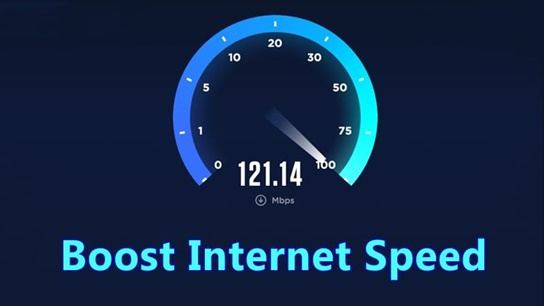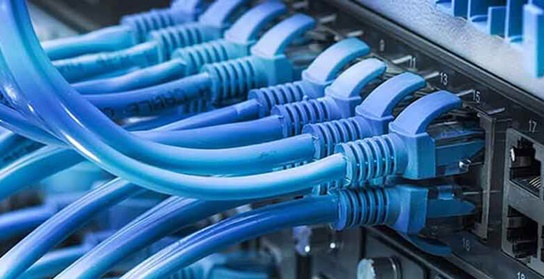Most people believe that 100 Mbps is faster than 50 Mbps. How Fast Is 100 Mbps? In reality, the speed difference between 100 Mbps and 50 Mbps is negligible. Even if both networks have the same amount of users, the speed on the 100 Mbps network will be slightly faster.
Because it has more bandwidth available. However, if you are only downloading files, then a 50 Mbps connection will be fine. In fact, many people prefer a 50 Mbps connection because it’s cheaper and still provides good speeds.
Contents
What Is 100 Mbps?
100 Mbps is a common internet speed and it’s the most common speed for home internet. 100 MBPS is the speed you would expect to find in most homes. Many people think that this is the standard speed for the internet. However, there are also other types of speeds available.
How Fast is 100 Mbps?[For Gaming And Streaming]
When it comes to How Fast is 100 Mbps? for gaming and streaming, there are a variety of factors to consider. Internet service providers (ISPs) advertise their speeds in megabits per second (Mbps), but that doesn’t mean that you will get the same speeds when you’re actually using the internet.

In general, most people will be able to get speeds of around 100 Mbps when gaming and streaming, but it may vary depending on your location, the ISP you use, and the devices you are using. For example, if you are using a 4K TV with a streaming service like Netflix, you may need speeds of at least 15 Mbps in order to get a smooth streaming experience.
If you are only using one device, such as a laptop or phone, then you may be able to get away with slower speeds.
What Factors Influence Internet Speed?
There are many factors that can influence internet speed. The distance from the user to the internet service provider (ISP) and the quality of the connection can affect how quickly data travels from one place to another.
The number of people using the network at the same time can also slow things down. In addition, some websites may be faster or slower than others due to their design or how much traffic they receive.
Location
Location is one of the biggest factors when it comes to internet speed. If you are located in a rural area, you will likely have slower internet speeds than someone who lives in a city. The time of day also affects your speed. The closer you are to the servers that your provider uses, the faster your connection will be.
Your Service Provider
Your service provider also affects your speed. Some providers have more reliable networks than others, so you may get better speeds with one provider than another. The type of device you are using also makes a difference. Some devices are able to connect to the internet faster than others.
How to Increase Your Internet Speed?
There are many ways that you can increase your internet speed. Some of these methods are simple, while others may require a bit more work. Below are some tips on how to increase your internet speed.

1. Check Your Internet Service Plan
You may be able to increase your speed without having to switch providers. Check your internet service plan. Most providers offer different speeds at different price points. You may be able to upgrade to a higher tier plan that will give you a faster speed for the same price or even less.
Another way to increase your speed is by checking your home network. Make sure all of your devices are using the latest Ethernet cables and protocols. Also, make sure you have a good router and that it’s properly set up. Finally, check for any software updates available for your devices and install them.
2. Disable Bandwidth-Hogging Programs And Services
It’s no secret that some programs and services can hog your internet bandwidth, resulting in a slower online experience. If you’re experiencing this issue, you can try disabling these bandwidth-hogging programs and services to increase your internet speed.
One way to identify if a program or service is using up too much bandwidth is to use a tool like Glasnost, which monitors network traffic and reports on which applications are consuming the most data.
Once you’ve identified the offenders, you can take steps to disable them. For example, if you’re using an old version of Skype that’s hogging your bandwidth, upgrade to the latest version, which uses fewer data. You can also adjust the settings for programs like Netflix so they consume fewer data.
3. Adjust Your Browser Settings
There are a few different ways that you can adjust your browser settings in order to increase your internet speed.
- One way is to adjust the amount of cache that your browser stores.
- The more cache that is stored, the less time it will take for your browser to load a website.
- You can also adjust the number of connections that your browser uses to connect to websites.
- The more Internet connections that are used, the faster the website will load. Finally, you can adjust your browser’s security settings.
- The higher the security setting, the slower the website will load.
4. Reboot Your Modem And Router
To reboot your modem and router, first, turn off your devices. Then, unplug your modem from the wall, wait about 30 seconds, and plug it back in. Next, unplug your router from the modem, wait about 30 seconds, and plug it back in.
Once your devices are rebooted, you can test your internet speed using a tool like Speedtest.net. If you’re still having issues with slow speeds, there may be a more serious problem that requires further investigation.
5. Make Sure You Are Using an Ethernet Cable
You may not be getting the most out of your internet speed because you are not using an Ethernet cable. How Fast Is 100 Mbps? Ethernet cables offer a more reliable and faster connection than other types of cables, such as coaxial or telephone cables. Make sure you are using an Ethernet cable to get the most out of your internet speed.

6. Upgrade Your Hardware
It’s no secret that a computer’s hardware affects its performance. Upgrading your hardware is an easy way to increase your internet speed without having to change your service plan or ISP.
One way to upgrade your computer is to add more RAM. This will allow your computer to keep more programs open at once and decrease the amount of time it takes for them to load. Another option is to upgrade your CPU. If you’re using an old model, a new one can make a big difference in performance.
Finally, consider upgrading your hard drive. A newer, faster drive can make a significant impact on how quickly your computer starts up and loads programs. When shopping for a new hard drive, be sure to get one with a high RPM rating.
Conclusion
In conclusion, 100 Mbps is a fast internet speed that can allow you to do many things at once. However, your experience may vary depending on your device and the way your internet service is set up. Always be sure to test your internet speed before you purchase a plan to make sure you are getting what you expect.
However, it may not be the best option for everyone, especially those who require a lot of bandwidth for online gaming or streaming high-definition video. If you’re looking for the absolute fastest speed possible, you’ll need to find a provider that offers a 1 Gbps service.

